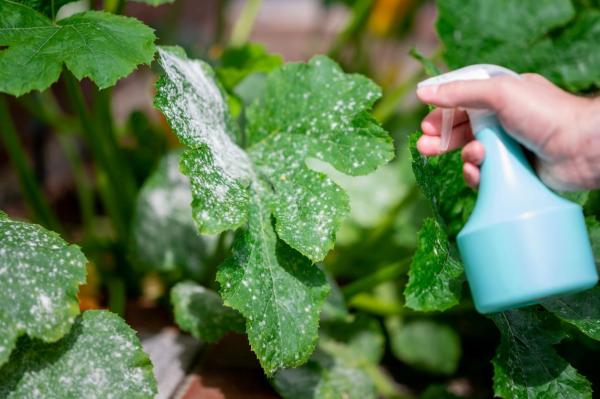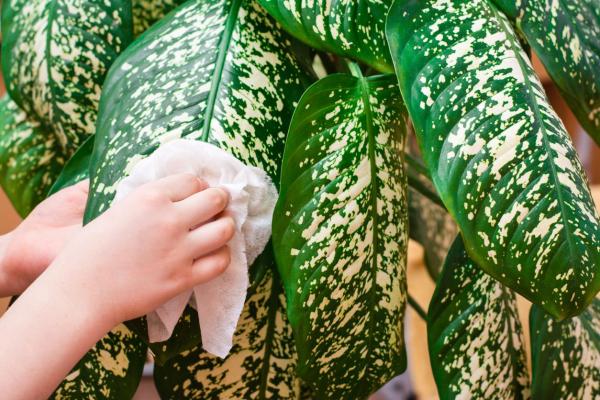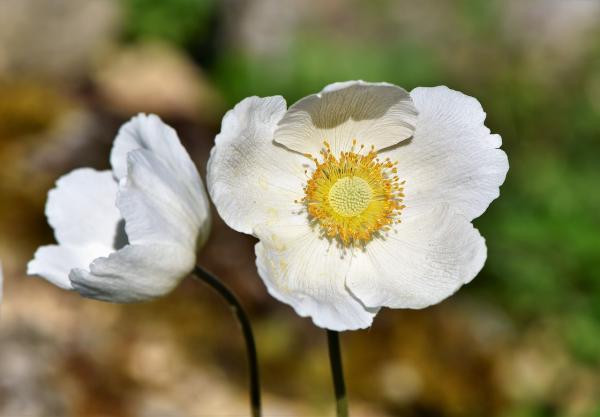
Milk is the first source of nutrition for mammals, even though many lose their tolerance later in life. Although we associate cow's milk and other types of milk as being beneficial to humans and animals, some see potential similar benefits to plant life. These benefits are said to stem from their nutritional advantages, as well as an ability to keep away pests. This leads oneHOWTO to ask the question can you water plants with milk? Keep reading to discover how milk as fertilizer might be able to benefit your plants, as well as what you need to consider to ensure it is used effectively.
Watering plants with milk
Regular watering is essential for any plant to survive and thrive. Without it, the plant will eventually die. Since milk contains water, does this mean we can replace water with milk in our watering can? To know the answer, we need to understand what happens if you water your plant with milk.
Milk contains minerals which are both helpful to both fauna and flora, especially calcium and potassium. However, plants do not need milk to survive. While milk can be beneficial to their growth and sustainability, if we were to only give them milk, they will not survive. Not only that, but having spoiled milk in our plants is likely to attracts bugs and pests which can harm both the plant, other nearby plants and ourselves.
For this reason, watering with milk can only be done with a weak solution of milk and water. This means watering will need a solution of 10% - 20% milk diluted in 90% - 80% water. Moreover, the plant should not be watered with milk more than once or twice a month maximum.
If you like the idea of making your own fertilizer using all natural products, take a look at our related article on how to make natural homemade fertilizer.
Milk as plant fungicide
Although using too much milk can increase bacterial and fungal growth, using it sporadically in solution can actually help kill some of them. For example, downy mildew fungi such as Diplocarpon rosae or powdery mildew can colonize a plant. This will damage it to varying degrees, often leading to the appearance of black spots on the plant leaves. For this reason you might be able to use milk as a natural preventive fungicide.
To make natural fungicide with milk, you will need to follow these steps:
- Make a mixture with 10 parts water and 1 part milk.
- Pour it into a spray diffuser and spray the entire plant, spraying the leaves, stem and fruit if this is applicable.
- Let it act for at least 24 hours and do not water during that time.
- Apply it once a month.
If your plant has already been attacked by fungi, try an even more powerful remedy by making your own homemade fungicide with milk and baking soda for the plants. If this is what you need, do as follows:
- Mix ¼ liter of milk and 1 liter of water in a spray bottle.
- Add 20 grams of baking soda (2-3 tablespoons).
- Shake vigorously to dissolve the baking soda.
- Apply all over the plant, focusing on the most affected areas.
- Use the fungicide once a week until the infection clears.
Leaf cleaner
Both inside the home and in outdoor areas, dirt can accumulate on leaves. While this is unlikely to kill the plant, it can clog their pores and make it difficult for them to breathe in some conditions. For this and aesthetic reasons, you may want to clean your plant regularly. Although doing this with water will be fine, using milk to clean plant leaves can add extra shine.
To clean plant leaves, make the same solution of milk and water as before. Spray on the leaves and wipe off with a clean cloth. Repeat if dirt remains or your want more shine. To learn more, take a look at our article on how to clean plant leaves with homemade remedies.

Powerful pest-repellent
As we have already indicated, milk has fungicidal and antibacterial properties. It also have beneficial effects which serve as protection against aphids, whiteflies or red mites, as well as to fight against other types of arthropods. To do this, apply it as indicated in section 2.
In addition to milk, there are many other remedies to eliminate pests in the garden and within the home. For more information, read our related article to discover the best home remedies to combat pests on your plants.
Milk as natural fertilizer
Not only can you use milk as a liquid fertilizer, you can also add it to compost. If your normally make organic compost for your garden with food scraps, branches, leaves, etc., do not hesitate to add leftover or even spoiled milk that you have left into the composter. With this simple method, you will obtain an even richer compost for your plants.
Once you make your homemade compost with milk, you will want to know how to use it on your plants.
Tool sanitizer
Sometimes garden tools become spreaders of diseases and pests among plants. If you use pruning shears to cut the leaves of a plant attacked by fungi and then use them on a healthy plant without prior cleaning, you can spread the plague to the healthy plant. This is why it is very important to clean tools when using on infested plants. The same goes with parasitical infestation and pests.
Milk is an excellent disinfectant for tools. Wipe the surface of the tools with a cotton pad soaked in milk after each use to ensure complete disinfection.

Soil pH regulator
The characteristics of the substrate in which a plant develops directly affect its growth and reproduction. As we know, there are acidic soils and alkaline soils depending on their pH level. Some plants do much better in a certain type of soil than in another.
Milk is good for plants that need a basic substrate, because the calcium it contains reduces acidity. The result will be a more alkaline soil. If this is your goal, dilute a large tablespoon of powdered milk in 1 liter of water, mix well and water your plants with this solution. You will be able to balance the pH of the soil in the garden or in your indoor plants. Only use it until the pH is balanced again.
If you want to read similar articles to Can You Water Your Plants With Milk?, we recommend you visit our Gardening & plants category.